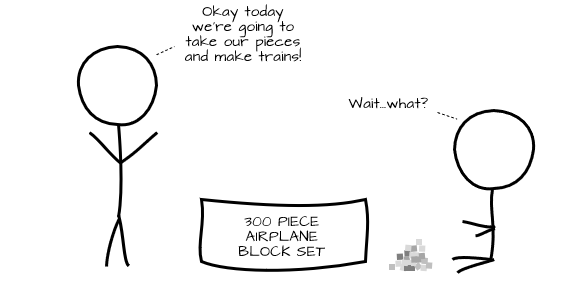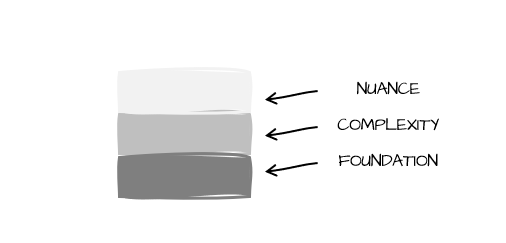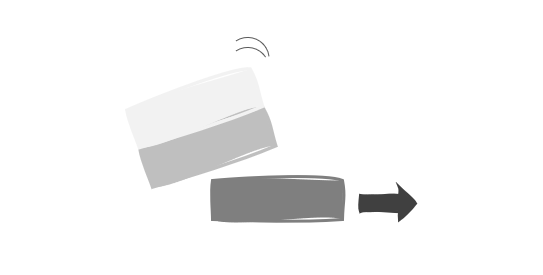Learning to Unlearn
The world changes quickly. Every year, new business models appear and challenge established norms. It’s difficult to compete if you aren’t constantly ingesting new thinking and practices.
Making matters worse, our past experience has built a rigid model for how we see the world.
While constant learning can be exhausting, it isn’t the hardest part of progress.
The hard part is forgetting.
Why Unlearning is a Critical Skill
When we learn, it typically looks like this:
We start with the basics, and layer on complexity and nuance as we gain experience.
We add, we don’t subtract.
So what happens when you learn something that challenges the very foundation of your understanding?
The cognitive dissonance instinctively causes you to reject the new premise.
On a small scale, this makes it much harder to learn.
On an organizational scale, it has the ability to impede transformative change.
If you want to be a leader, you have to learn how to unlearn or you put your entire organization’s future at risk.
How to Unlearn
Whether or not you have a strong capacity for unlearning, there are things you can do to constantly improve.
Read about industries or strategies that you instinctively reject, and get to know them better. Spend time with the unfamiliar and uncomfortable until you dull the instincts that reject philosophies that don’t fit your mental model.
Practice holding two conflicting ideas in your head simultaneously. Embracing those with differing perspectives and seeing the world through a variety of lenses will make you a more flexible thinker.
As a leader, celebrate when you - or your team - successfully unlearns a behaviour that had always been routine. Shun organizational dogma, and create a safe space where challenges and debate are encouraged.
With enough practice and patience, you’ll be more open to new ideas and have an organization that’s more nimble to adapt to a changing world.
Have you had any ‘unlearning’ moments that completely changed how you behaved? Share below!
















